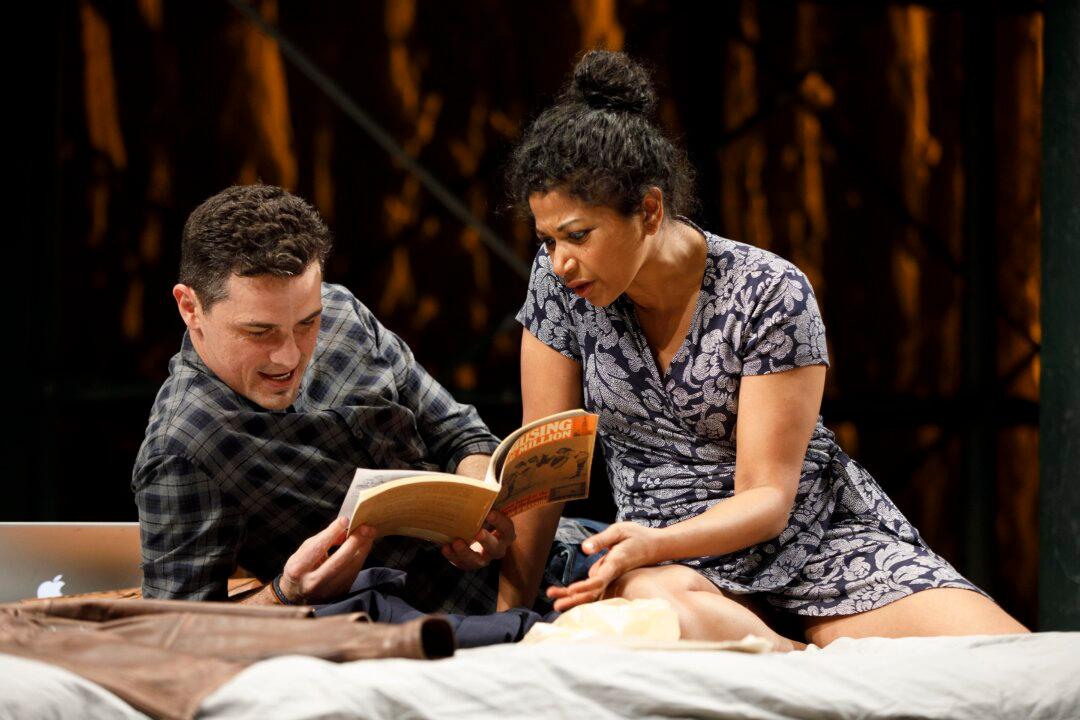NEW YORK—Having the perfect vision for your artistic endeavor is all well and good. However, buying into someone else’s vision and taking it on as your own can be somewhat dangerous. Rinne Groff’s very involving drama, “Fire in Dreamland,” now at the Public Theater, explores this point.
Kate (Rebecca Naomi Jones) is a burned-out event planner, desperate for something to believe in. One night on the Coney Island Boardwalk, she meets Jaap Hooft (Enver Gjokaj), a Dutch filmmaker currently in film school in New York.





